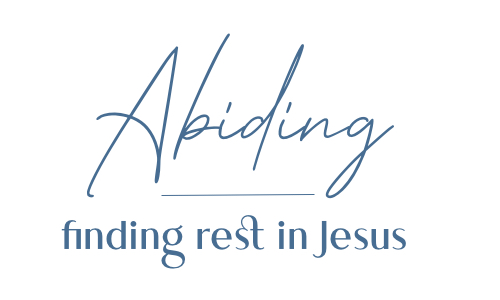What a pleasure to hear devotional thoughts from Jennifer Epperson this week! You can learn more about her on our contributors page.
April 1, 2009, my uncle passed away unexpectedly. It was an unusual manner of death—an unfortunate series of events. Shortly thereafter, in Sunday school, someone stood up and asked for prayer requests. I shared that my uncle had recently passed unexpectedly and asked for prayer for my family.
It had not even been three months since his mother (my grandma) had passed, so I was especially burdened for my mom and her siblings. When I shared my request, he said something along the lines of, “Well, no one’s death is unexpected since we are all going to die at some point, but we’ll be praying for your family.” I was dumbfounded.
Yes, what he had said was technically true, but the fact that death is unavoidable doesn’t take away the shock value—especially when it happens to someone you love or happens in an unusual way. I wanted to stand up and explain the circumstances of my uncle’s death and tell him that my grandma had just died, and my family was still trying to process that profound loss, so that he would understand that his comment was ill-timed.
The truth is, even though death is inevitable, it still manages to surprise us. My grandma was very ill. I knew her death was coming, but it still felt like the world stopped spinning when I got the call. My sister-in-law passed recently. She had been ill for a long time and near death more than once. Still.
When the news came, I was shocked. My friend was talking to me when I received the news, and I lost the ability to understand words. Her voice was garbled and muffled as though we were trying to communicate while on two separate planes of existence.
Why does death shock us so much, even though we know it is a fact of life? It’s the finality. This person was here on this earth—breathing, living, loving—and now this person is gone. We have now experienced the last conversation, the last hug, the last laugh—the last everything in this lifetime. Sometimes the shock continues for a while. The news can be difficult to process. We may wonder how we can keep moving forward.
It helps to remember that we are not alone. According to Psalm 34:8, “The Lord is nigh unto them that are of a broken heart,” and Psalm 147:3 tells us, “He healeth the broken in heart, and bindeth up their wounds.” Not only is the Lord with us in the midst of our suffering, but He is also actively mending our brokenness.
The pain that you are enduring may seem insurmountable. Psalm 27:13 and 14 offer this encouragement: “I had fainted, unless I had believed to see the goodness of the Lord in the land of the living. Wait on the Lord: be of good courage, and he shall strengthen thine heart: wait, I say, on the Lord.” When grief weighs heavily, it is hard to believe that God is still good, but sometimes we must choose to see His goodness—even when it’s hard to do so. He will strengthen our hearts.
Additional good news is that if we know Christ as our Savior, and our deceased loved one does, too, then we can “sorrow not, even as others which have no hope” (1 Thessalonians 4:13). Yes, we will sorrow, but the sting of our sorrow is lessened because we know we will meet our loved ones again in Heaven.
And finally, here are some words of Jesus that I find to be a source of immense comfort: “And I will pray the Father, and he shall give you another Comforter, that he may abide with you for ever; Even the Spirit of truth. . .ye know him; for he dwelleth with you, and shall be in you.I will not leave you comfortless: I will come to you.” (John 14:16-18)
I love this reminder that we have a constant source of comfort, and I love that assurance “I will come to you.” The truth is that sometimes coming to Him when you’re immersed in your grief can feel impossible. Rest in the knowledge that He comes to you. He is right there holding you. “Blessed are they that mourn: for they shall be comforted” (Matthew 5:4).


Recent Comments